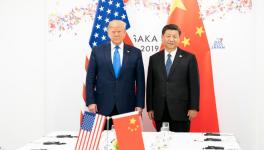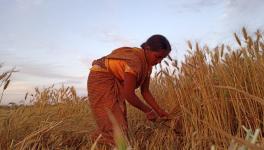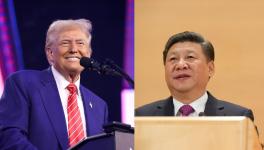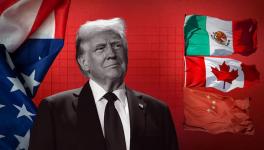NGO’s Term WTO ban on Their Entry to Ministerial Conference Undemocratic
Around 50 non-governmental organisations (NGOs) from around the world have termed the World Trade Organisation’s (WTO) decision to ban their access to its 12th Ministerial Conference (MC12) in Geneva due to “unexpected security-related reasons” as a “further de-democratisation of the organisation and completely unacceptable.
According to a press release issued by the Norwegian Trade Campaign, the NGOs view the WTO’s decision “as part of a further de-democratisation of the organisation and distancing itself from civil society groups even as it has further welcomed large global corporations”. “The latter are routinely welcomed in the WTO at places and times where and when civil society groups are refused access.”
Three days before the MC12 was scheduled to kick off on June 12, the NGOs were informed that their access on the first day was retracted due to “unexpected security-related reasons”. “Even after repeated asking, these ‘reasons’ were never shared, much less explained or justified,” the NGOs said.
Recounting a similar experience at the last WTO ministerial conference in Buenos Aires, Argentina, in 2017, civil society groups fear that such exclusions are becoming a “permanent and perhaps, worsening feature” during this and future ministerial conferences.
Richard Hill, from Association for Proper Internet Governance, Switzerland, who was set to attend the conference said: “As a Swiss citizen, I am surprised, disappointed, and outraged that I will not be allowed to enter the WTO premises for the opening of the WTO Ministerial meeting on Sunday even though I am a registered and accredited civil society representative to the meeting.”
According to Hill, the decision is “surprising for a meeting held in Switzerland, which has a long and robust tradition of consulting and listening to all concerned parties, in particular civil society”.
The NGOs said that Geneva has hosted such conferences multiple times—the 2009 conference saw a larger representation of civil society organisations (CSOs)—but never restricted their entry to the premises.
The MC12 was moved from the host country Kazakhstan to Switzerland in November 2021 due to COVID-19. The WTO imposed so-called “floating badges” to restrict the number of attendees per organisation due to local COVID-19 restrictions. Despite the local restrictions now being removed, the WTO has decided to uphold the same.
Sofía B. Scasserra, of the CSO representatives denied access to the Buenos Aires conference, said: “Four years ago, many in civil society were left out of the Buenos Aires Ministerial Conference, showing how undemocratic it is and how it makes decisions behind the people’s backs.”
Scasserra, from UNTREF, Argentina, added: “I thought it would be different here but it is the same story repeating itself. We fear that the WTO is now normalising this process of excluding civil society from its processes while businesses are embraced more and more by it. This is completely unacceptable and goes against the interests of the people in whose name the WTO convenes.”
Olisias Gulthom, from Indonesia for Global Justice, sees the retraction of civil society’s access to the meeting as a further move towards shrinking policy space for certain groups. “Tactics towards civil society organisations mirror the director general’s Green Room talks and bullying towards many developing countries at MC12,” Gulthom said.
Get the latest reports & analysis with people's perspective on Protests, movements & deep analytical videos, discussions of the current affairs in your Telegram app. Subscribe to NewsClick's Telegram channel & get Real-Time updates on stories, as they get published on our website.
























